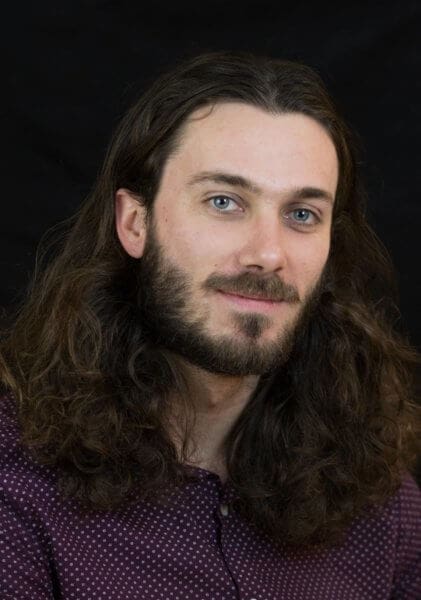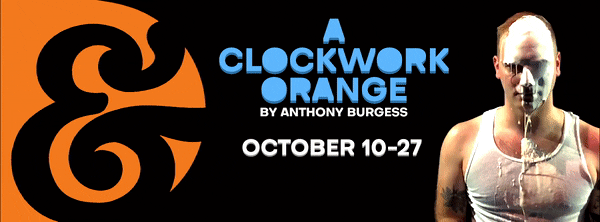- Skip to primary navigation
- Skip to secondary navigation
- Skip to main content
- Skip to primary sidebar
Dystasteful Dystopia: Ty Blogs on A Clockwork Orange
 I knew from the audition this show was going to be something special. Coming in on day one for the table read and introduction to the production team kicked my excitement into overdrive. Our director, Cassie Greer, dove straight into a biography of Anthony Burgess, a critical analysis of the script and her own unique insights and goals for the show. This vision and the powerful atmosphere created by the design team has provided an inspiring space to explore. It lets us engage with the script in our own way while receiving feedback and direction that shapes everyone’s contribution into a cohesive, effective story.
I knew from the audition this show was going to be something special. Coming in on day one for the table read and introduction to the production team kicked my excitement into overdrive. Our director, Cassie Greer, dove straight into a biography of Anthony Burgess, a critical analysis of the script and her own unique insights and goals for the show. This vision and the powerful atmosphere created by the design team has provided an inspiring space to explore. It lets us engage with the script in our own way while receiving feedback and direction that shapes everyone’s contribution into a cohesive, effective story.
We’re three weeks into the rehearsal process and now that I’m sufficiently overloaded with song, dance, lines, and blocking I’ve got a chance to reflect on that inspiring first meeting. This sparked an interest in brainstorming, and word vomiting via a blog post, some of the themes Burgess employs.
Burgess wrote a play (with music!) fantastic enough to transcend any one time period. However, there are plenty of helpful and exciting undertones tied to a post-war Britain. He references recent wars (WWI and WWII), new and revolutionary behavioral sciences (Burgess later wrote fiction involving Freud), the dangerous mob mentality of disaffected youth culture (influenced by the Teddy Boys, a post-WWII youth movement), and revolutionary political dissension (Burgess made Leon Trotsky, a Russian political revolutionary, a character in a later work). He stripped these of any specific historic fact letting the reader engage more intimately with the implications of such an environment.
One theme that stands out to me relates to the dangerous hypocrisy of the powerful. In the show, the establishment condemns and opposes the youth’s violence without providing any alternatives for their misused energy. Instead, they use equally violent means to detain and deter. They even go a step further and profit from these violent tendencies by employing them as foot soldiers suppressing any further dissidence. These kids merely exercised their energy using the path of least resistance. A horrid and disruptive path, but one they did not create all their own. Burgess crafts these scenarios in such a way that we don’t get anyone malevolent actor to hate and critique. Rather, he paints a scary picture of systemic dysfunction. A relatable social and political dysfunction that would take real humility and ardor to overcome.
Alright, I digress. Anyway.. I think theatre like this draws you into a powerful, engaging, difficult world and sends you home with the energy to see relatable issues through a different lens. The book is brilliant, the movie powerful, but this show has a style all its own. But don’t take my word for it, come see for yourself!


Reader Interactions